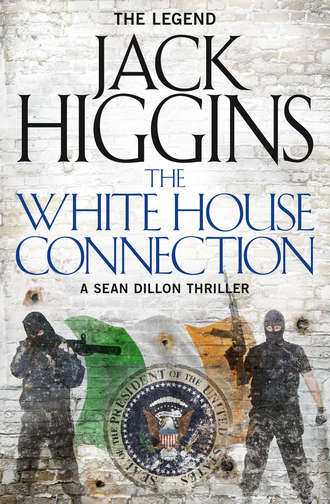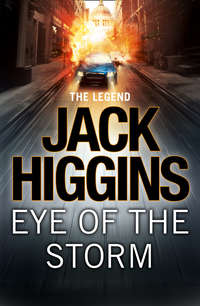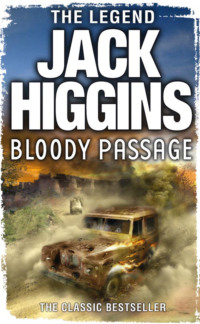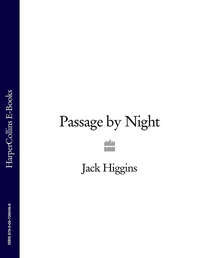
Полная версия
The White House Connection
Dillon poured another Bushmills. ‘Not as far as we know.’
‘You don’t agree?’
‘Just because we can’t see them doesn’t mean they’re not there. On the Loyalist side, we have the paramilitaries like the UVF, and then the LVF, who’ve been responsible for all those attacks and assassinations, we know that.’
‘Murders,’ Hannah said.
‘A point of view. They see themselves as gallant freedom fighters, just like the Stern Gang in Jerusalem in forty-eight,’ Dillon reminded her. ‘And then on the Republican side, we have the INLA and Jack Barry’s Sons of Erin.’
‘That bastard again,’ Ferguson nodded. ‘I’d give my pension to put my hands on him.’
‘Splinter groups on both sides. God knows how many,’ Dillon told them.
‘And not much we can do about it at the moment,’ Hannah Bernstein said. ‘As the Brigadier says, the powers that be say hands off.’
Dillon went to the terrace window and peered out. It was raining hard. ‘Well, in spite of all that, there are bastards out there waiting to create bloody mayhem. Tim Pat Ryan, for example.’
‘How many times have we turned that one over,’ Hannah reminded him. ‘He’s got the best lawyers in London. We’d have difficulty getting a result even if we caught him with a block of Semtex in his hand.’
‘Oh, sure,’ Dillon said. ‘But he’s definitely supplied active service units with material in the past, we know that.’
‘And can’t prove it.’
Ferguson said, ‘You’d like to play executioner again, wouldn’t you?’
Dillon shrugged. ‘He wouldn’t be missed. Scotland Yard would break out the champagne.’
‘You can forget it.’ Ferguson stood up. ‘I feel like an early night. Off you go, children. My driver’s waiting for you in the Daimler, Chief Inspector. Good night to you.’
When they opened the door, it was raining hard. Dillon took an umbrella from the hall stand, opened it and took her down to the Daimler. She got in the rear and put the window down a little.
‘I worry about you when things get quiet. You’re at your most dangerous.’
‘Be off with you before I begin to think you care.’ He grinned. ‘I’ll see you at the office in the morning.’
He kept the umbrella and walked rapidly away. He had a small house in Stable Mews only five minutes away and as he walked in the front door, he felt strangely restless. The place was small, very Victorian: Oriental rugs, polished woodblock floors, a fireplace with an oil painting by Atkinson Grimshaw, the great Victorian artist, above it, for Dillon was not without money, mostly nefariously obtained over the years.
He poured another Bushmills, stood with it in his hand, gazing up at the Grimshaw, thinking of Tim Pat Ryan. He had too much nervous energy to sleep and he checked his watch. Eleven-thirty. He walked to the sideboard, took the stopper out of the decanter and poured the glass of whiskey back.
He went to the shelves of books in an alcove, took three out and opened a flap behind, removing a Walther PPK with a silencer already fitted. He replaced the books, checked the weapon and put it into the waistband of his jeans, snug against the small of his back.
He took the umbrella when he left the house, for the rain was relentless, and lifted the garage door, where an old Mini Cooper in British racing green waited. The perfect town car, so small and yet capable of over a hundred with the foot down. He got in, drove to the end of the mews and paused to light a cigarette.
‘Right, you bastard, let’s see how you’re doing,’ and he drove away.
At the same moment, Helen Lang, dozing on the couch, came awake, aware of Tim Pat Ryan’s face, the last photo she had looked at in the file. She sat up, face damp with sweat, aware that in the dream he had been hurting her, laughing sarcastically. She stood up, went to the desk and stared down at the open file, and Tim Pat Ryan looked back at her.
She picked up the Colt and weighed it in her hand. There was an inevitability to things now. She stood in the hall, pulled on a trenchcoat and rain hat, opened the shoulder bag that hung on the hall stand, found some cash, then put the Colt in her pocket, took down her umbrella and let herself out.
She hurried along South Audley Street, the umbrella protecting her from the driving rain, intending to go to the Dorchester nearby. There were always cabs there, but as it happened, one came along on the other side of the road. She waved him down and darted across.
‘Wapping High Street,’ she said, as she climbed inside. ‘You can drop me by the George,’ and she sat back, tense and excited.
Hedley had retired with no intention of sleeping, had simply sat in an armchair in the basement flat in the darkness, for some reason afraid for her. He had heard her footsteps in the hall, was up and waiting at the foot of the stairs. As the front door opened and closed, he grabbed his jacket, went up and had the door open. He saw her hurrying along the pavement, the umbrella bobbing, the wave of the hand for the cab. He’d left the Mercedes at the kerb, and was at it in an instant and switched it on. As the cab passed on the other side of the road, he went after it.
Dillon reached the Tower of London, St Katherine’s Way, and moved into Wapping High Street. He passed the George Hotel, turning into a maze of side streets and finally parked on a deadend turning. He got out, locked the door and walked rapidly between the tall decaying warehouses, finally turning on to China Wharf. There were few ships now, only the occasional barge, long-disused cranes looming into the sky.
The Sailor was at the end beyond the old quay. He checked his watch. Midnight. Long past closing time. When he paused in the shadows, the kitchen door at one side opened, light flooding out. Tim Pat Ryan and a woman.
‘See you tomorrow, Rosie.’
He kissed her cheek and she walked away rapidly, passing Dillon safe in the shadows. He moved to the nearest window and peered in. Ryan was sitting at the bar with a glass of beer, reading a newspaper, totally alone. Dillon eased open the kitchen door and entered.
The saloon was very old-fashioned and ornate with a mahogany bar and gilded angels on either side of a great mirror, for The Sailor dated from Victorian times, when sailing ships had moved up the Thames by the dozen each day to tie up and unload at the quay. There were rows of bottles on glass shelves, beer pumps with ivory handles. Ryan was proud of it and kept it in apple-pie order. He loved it like this at night, all alone, reading the Standard in the quiet. There was a slight eerie creaking of a door hinge, a draught of air that lifted the paper. He turned and Dillon entered the bar.
‘God save the good work,’ Dillon said cheerfully. ‘There’s hope for the world yet. You can actually read.’
Ryan’s face was like stone. ‘What do you want, Dillon?’
‘“God save you kindly” was the answer to that,’ Dillon said. ‘And you an Irishman and not knowing.’
‘You’ve no right to be here. I’m clean.’
‘Never in a thousand years.’
Ryan stood and opened his jacket. ‘Try me. I’m not carrying.’
‘I know. You’re too clever for that.’
‘You’ve no right to be here. You’re not even Scotland Yard.’
‘Granted, but I’m something more. Your own worst nightmare.’
‘Get out now.’
‘Before you throw me out? I don’t think so.’ Dillon lifted the bar flap, went behind, reached for a bottle of Bushmills and a glass and filled it. ‘I won’t drink with a piece of dung like you, but I’ll have one for myself. It’s cold outside.’
Without a flicker of emotion, Ryan said, ‘I could call the police.’
‘What for? I’m not carrying myself,’ Dillon smiled as he lied. ‘You see, old son, this is a new agenda, what with the Northern Ireland Secretary, Sinn Fein and the Loyalists with their heads together in Belfast working away at the peace process. I mean, who needs guns any more? My boss wouldn’t like it.’
‘What do you want?’ Ryan asked. ‘What is this? You’ve been on my back for years.’
‘Just making my rounds,’ Dillon said. ‘Just to let you know I’m still on your case. The Semtex you supplied the Birmingham and London units – how many bombings was it used for? Three? Four housewives in that shopping mall in Birmingham. We know it was you, we just can’t prove it. Yet.’
‘You can talk. How many did you kill for the cause? For nearly twenty years, Dillon, until you turned traitor.’
‘But I never sold drugs or used young girls for prostitution,’ Dillon said. ‘There’s a difference.’ He swallowed the rest of the Bushmills and put the glass down. ‘It’s cold outside and dark and I’ll always be there in the shadows. To vary an old IRA saying, my day will come.’
He turned and walked to the kitchen door and Ryan exploded. ‘Fuck you, Dillon, fuck you. I’m Tim Pat Ryan. I’m the man. You can’t treat me like this,’ but the kitchen door was already closing softly.
Ryan, beside himself with rage now, hurled back the flap, opened the old-fashioned cash register, fumbled at the back of the drawer and found the Smith & Wesson .38 pistol he always kept there fully loaded, turned and headed for the kitchen.
Lady Helen Lang had paid off the cab outside the George Hotel in Wapping High Street. Remembering the street map, she crossed the road and turned into a narrow lane. Hedley, caught behind two cars at a red light, saw her go. He swore softly, took off on the green and moved into the same lane. But there was no sign of her, even when he turned his lights on fully. It was a maze of decaying warehouses and narrow crisscrossing streets. What in the hell was she playing at in a place like this? Frantic with worry, he started to cruise slowly.
Lady Helen, her umbrella high against the teeming rain, found China Wharf with no trouble. There was a light at the pub window and an old-fashioned gas lamp bracketed to the wall above the painted sign that said The Sailor. It threw a diffused light to the edge of the wharf, the river black beyond, lights on the far side. She hesitated, uncertain now. A large Range Rover was parked close to the pub entrance, Ryan’s, probably.
She stood in the umbrella’s shelter and the kitchen door opened and Dillon came out. She recognized him at once from the file, and, surprised, she drew back. She watched him walk across the wharf and light a cigarette, then the kitchen door opened again and Tim Pat Ryan, also unmistakable, rushed out.
‘Dillon, you bastard,’ he called, and in the light she saw the Smith & Wesson. ‘Here’s for you.’
Dillon laughed. ‘You couldn’t hit a barn door, you never could. Someone always had to do it for you.’
His hand found the butt of the Walther and he drew it, crouching as Ryan fired wildly. Dillon put a foot forward to steady himself, but there was a puddle of spilled oil there, and he slipped, falling headlong, the Walther skidding away.
Ryan laughed triumphantly. ‘I’ve got you now,’ and he fired again.
Dillon rolled frantically and went over the edge of the wharf, plunging into the dark waters below. It was bitterly cold and he surfaced to find Ryan peering down.
‘So there you are.’
He raised his Smith & Wesson, and then Dillon heard a voice call: ‘Mr Ryan.’
Ryan turned. Dillon heard a muted cough that he recognized as the sound of a silenced pistol, then Ryan came backwards over the edge of the wharf, hit the water beside Dillon and surfaced with a hole between his eyes. Dillon pushed him away and grabbed for a ring bolt. There was a footfall above, but no one looked over. When the voice spoke again, it was with an Irish accent.
‘Are you all right, Mr Dillon?’
‘As ever was, ma’am, and who in God’s name might you be?’
‘Your guardian angel. Take care, my friend.’
He heard her walk away, as he swam to a wooden ladder and climbed up. As his head rose above the edge of the wharf, he caught a brief glimpse of her disappearing into the shadows, a dark shape under an umbrella that was gone in a moment.
He pulled himself over and stood up, streaming water. His Walther lay where it had fallen and Ryan’s weapon was close by. He pushed the Walther into his waistband and picked up the Smith & Wesson, went to the edge of the wharf, looked down at Ryan’s half-submerged body, then hurled the gun far out into the river.
‘And you can chew on that, you bastard,’ he said, and hurried back to the Mini Cooper.
He had a mobile phone in the glove compartment, got it out and dialled Cavendish Square. Ferguson sounded irate. ‘Who is this?’
‘It’s me,’ Dillon told him.
‘Good God, do you know what time it is? I’m in bed. Can’t it wait until the morning?’
‘Not really. An old friend just passed on.’
Ferguson’s voice changed. ‘Permanently?’
‘Very much so.’
‘You’d better come round then.’
‘I need to go home first.’
‘What on earth for?’
‘Because I’ve been swimming in the Thames, that’s why,’ and Dillon switched off and drove away.
Ferguson thought about it and then phoned Hannah Bernstein. She answered at once. ‘Are you in bed?’
‘No, reading actually. One of those nights. Can’t sleep.’
‘Phone through for one of the emergency cars and get round here. It would appear our Sean has been involved in some sort of mischief.’
‘Oh, dear, bad?’
‘The graveyard variety, or so it would seem. I’ll see you soon.’
He put down the phone, got out of bed and pulled on a robe, then he phoned through to Kim, his Ghurka manservant, woke him up and ordered tea.
Hedley had almost given up when he saw her at the end of the sidewalk in front of him, and as he coasted towards her, three youths came round the corner wearing bomber jackets and jeans, young animals of the kind to be found anywhere in the world, from New York to London. Hedley heard the ugly laughter and then they were on to her, one of them yanking her purse away. His anger was instant, he braked at the kerb and jumped out.
‘Leave it.’
One of them pushed Helen against the wall and they all turned. The one with the purse said, ‘Hey, nigger, get out of here, this is none of your business.’
They moved in on him and it all came back: ’Nam, the Delta, every dirty trick he’d ever learned. He grabbed the wrist of the one holding the purse, twisted the arm straight, and delivered a hammer blow that snapped the bone. His right elbow went back into the face of the one behind, breaking the nose, and his left foot scraped down the leg of the third, dislodging the kneecap.
They were on the sidewalk, crying in pain. He picked up the purse and took her arm. ‘Can we go now?’
‘My God, Hedley, you don’t take prisoners.’
‘Never could see the point.’
‘What are you doing here?’
‘I heard you leave, so I followed. Then I lost you when you went on foot.’
He held the door for her, she slipped in and he got in behind the wheel. Sounding a little breathless, she opened her purse, took out a bottle and shook a couple of pills into her palm.
‘The flask, Hedley.’
‘Lady Helen, you shouldn’t.’
‘The flask.’ Her voice was insistent and he passed the flask over reluctantly. She drank, washing the pills down, a warm glow spreading through her. ‘We’ll go back to South Audley Street now and pack. Compton Place in the morning.’
As he pulled away, he said anxiously, ‘Are you okay?’
‘Never better. You see, I just executed Tim Pat Ryan.’
He swerved slightly, then regained control. ‘You’ve got to be kidding me.’
‘Not at all. Let me tell you about it.’
Kim opened the door to let Dillon in, and when the Irishman went into the drawing room, he found Hannah Bernstein, wearing a track suit, opposite Ferguson, who wore a robe over his pyjamas.
‘God bless all here,’ Dillon said.
‘Enough of the stage Irishman, Dillon. Just tell us the worst,’ Ferguson said wearily.
Dillon did, in a few brief sentences, then went and helped himself to the Bushmills.
‘For God’s sake, what am I to do with you?’ Ferguson demanded. ‘You know the present political situation. Hands off, no trouble, and yet out of some strange perversity, you went looking for it.’
‘I only intended to lean on the bastard.’
For once it was Hannah Bernstein who spoke up.
‘It’s no great loss, sir. Ryan was like something from under a stone.’
‘Yes, I admit to a certain satisfaction,’ the Brigadier told her. ‘But how does that fine Special Branch mind intend to handle it?’
‘By leaving it alone, sir. Someone will find Ryan down there by the wharf soon enough. That leaves Scotland Yard and a Murder Squad investigation. Let’s face it, a piece of filth like Ryan had more enemies than you could count. It’s not our problem, sir.’
‘I agree,’ Ferguson said.
Dillon shook his head. ‘Jesus, ’tis the hard woman you are. Whatever happened to that nice Jewish girl I fell in love with?’
‘Comes of working with you.’ She turned to Ferguson. ‘To business, sir, our business. This woman with the Irish accent may have done us a favour, but I’d like to know who she is. With your permission, I’ll trawl all intelligence sources on the computer at the Ministry of Defence and see what I can see.’
‘Be my guest, Chief Inspector. There may be a Loyalist link here.’
‘I don’t think so,’ Dillon said. ‘Most Loyalists have the Ulster accent like my own. Hers was different.’
‘No matter.’ Ferguson stood. ‘You can stay in one of the spare bedrooms, Chief Inspector, I don’t want to turn you out again in the rain at this time in the morning.’
‘Thank you, sir.’
He turned. ‘You, of course, can walk home, Dillon. I mean, you Irish are used to the rain, aren’t you?’
‘God save your honour, ’tis the grand man you are. I’ll take my shoes off at your door, tie them round my neck and walk barefoot to Stable Mews to save the leather.’
Ferguson laughed out loud. ‘Just go, you rogue, go,’ and Dillon went out.
In the study at South Audley Street, Lady Helen sat at the desk examining the file, and Hedley came in with tea on a tray. He put the tray down and poured tea into a cup.
She added milk, English style, and sipped it. ‘Lovely.’ She leaned over the file. ‘Strange. Tim Pat Ryan was the last on the list, but the first to go.’
‘Lady Helen, this can’t go on.’
‘Oh, yes, it damn well can. What’s my money buy me that’s worth anything, Hedley? Those bastards, all of them, were directly responsible for the butchery of my son. As a result, my husband died an early and unnecessary death, and I’ll tell you another thing, old friend. I don’t have much time. The pills I’ve been taking – I have a damaged heart.’
He was deeply shocked and sat down. ‘I didn’t realize.’
‘You do now, so are you with me or against me? You could phone Dr Ingram and tell him I’ve gone mad. You could call Scotland Yard and they’d arrest me for murder. It’s up to you, isn’t it?’
He stood up. ‘You’ve been good to me, more than anyone else in my life.’ He sighed. ‘I still don’t like it, but one thing’s for sure. You need someone you can count on, and I’ll be there for you, just like you were there for me.’
‘Bless you, Hedley. Get some sleep and we’ll leave for Compton Place in the morning.’
He left the room and she sat there, wondering how Dillon was getting on, then she went and lay on the couch and pulled a comforter over herself.
3
At the Ministry of Defence, Hannah Bernstein’s efforts at trawling the computer proved useless. She even tried Dublin and British Army Headquarters at Lisburn, in Northern Ireland, but nothing. So, the matter was shelved. Ryan’s death was a seven-day wonder; the newspapers spoke of rivalry between gangs in the East End and other parts of London. No one at Scotland Yard was shedding tears, underworld contacts proved useless, the case was shelved. Left open, of course, but shelved.
At Compton Place, Helen ate well, took long walks and got plenty of fresh air. She also practised at the pistol shooting range in the old barn, a reluctant Hedley giving her the benefit of his expertise. She had never realized how good he was until one afternoon, after supervising her, he picked up a Browning, one of many handguns her husband had accumulated over the years, and loaded it. There were seven cardboard targets at the far end of the barn, each a facsimile of a charging Chinese soldier, a legacy of the old colonel’s time in the Korean War.
‘I want you to watch.’
He was about thirty feet away. His hand swung, he fired rapidly and shot each target through the head. She was amazed and showed it as the sound died away.
‘Incredible.’
‘But I’m a trained soldier. Now, you, you’re good, but handguns are unreliable unless you get close.’
‘How close?’
He slammed a fresh clip into the butt of the Browning and handed it to her. ‘Come with me.’ He led her to the large centre target. ‘Right, put it against his heart and pull the trigger.’ She did as he ordered. ‘Now you get it, that close.’
‘I was about twelve feet away from Ryan.’
‘Sure, but you could have missed and he might have got you.’
‘All right, but I’d still like to return to the table and try again from there.’
‘Be my guest.’ The mobile phone on the table rang.
He opened it and passed it to her and she said, ‘Helen Lang.’ After a while, she nodded. ‘My thanks. I’m so sorry.’ She closed the phone and looked at Hedley. ‘Tony Emsworth just died.’
‘That’s a shame. When is the funeral?’
‘Wednesday.’
‘Are we going?’
‘Of course.’ She was calm, but there was pain in her eyes. ‘I’ve had enough, Hedley. I think I’ll go back inside,’ and she walked away.
It was a fine sunny morning for the funeral at Stukeley. As it was no more than an hour’s drive from London, the church was full and Helen Lang, sitting on one side of the aisle, was almost amused to find Ferguson, Hannah Bernstein and Dillon on the other. On her way out, she paused to shake hands with Tony Emsworth’s nephew and his wife, who had organized things.
‘So nice of you to come, Lady Helen,’ they chorused. ‘We’ve arranged a reception at the Country Hotel just outside the village. Do come.’
Which she did. The hotel lounge was crowded. She accepted a glass of indifferent champagne and then Charles Ferguson saw her and barrelled through the crowd.
‘My dear Helen.’ He kissed her on both cheeks. ‘My God, you still look fifty and that’s on a bad day. How do you do it?’
‘You were always a charmer, Charles, a glib charmer, but a charmer.’ She turned to Hannah at his shoulder. ‘Beware of this one, my dear. I remember when he had an affair with the Uruguayan Ambassador’s wife, and her husband challenged him to a duel.’
‘Now, Helen, that’s very naughty. This gorgeous creature is my assistant, Detective Chief Inspector Hannah Bernstein, and this Irish rogue is one Sean Dillon, who knew Tony quite well. Lady Helen Lang.’
Dillon wore an easy-fitting Armani suit of navy blue. Helen Lang took to him at once as they shook hands. At that moment, someone called to Ferguson, who turned and moved away. Dillon and Hannah went with him.
Ferguson said hello to the man who’d called him and Dillon pulled him around. ‘Lady Lang, who is she?’
‘Oh, I soldiered with her husband in Korea. Her son, Major Peter Lang, was Scots Guards and SAS. One of our best undercover agents in you-know-where. Someone in the IRA got on to him the other year and blew him up. Car bomb.’
Hannah Bernstein was talking to someone and Ferguson was hailed again. Suddenly, it was all too much for Helen Lang and, slightly breathless, she went out on to the terrace in the February sunshine. Dillon saw her go. There was something about her, something he couldn’t define, so he went after her.
She was at the terrace balustrade tossing a couple of pills back when Dillon arrived. ‘Can I get you a glass of champagne?’
‘Frankly, I’d rather have whisky.’









